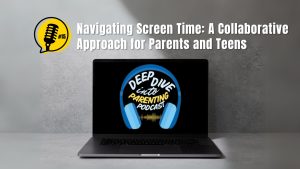Snapchat is currently the most popular social media app with teens. One of the most appealing aspects of Snapchat to its users is the ability to send ""temporary"" images and videos with the expectation the message will delete after it is viewed.
Last week, Snapchat updated its app with new features and a new terms of service. When Snapchat users clicked 'accept' after updating, they granted Snapchat a ""worldwide, perpetual, royalty-free, sublicensable, and transferable license to host, store, use, display, reproduce, modify, adapt, edit, publish, create derivative works from, publicly perform, broadcast, distribute, syndicate, promote, exhibit, and publicly display that content in any form and in any and all media or distribution methods (now known or later developed).""
We will use this license for the limited purpose of operating, developing, providing, promoting, and improving the Services; researching and developing new ones; and making content submitted through the Services available to our business partners for syndication, broadcast, distribution, or publication outside the Services. Some Services offer you tools to control who can—and cannot—see your content under this license. For more information about how to tailor who can watch your content, please take a look at our privacy policy and support site.
Another thing to be aware of is the addition of a term that allows Snapchat to use your name, likeness and voice that has been added to a Live Story for marketing campaigns without compensation:
To the extent it’s necessary, you also grant Snapchat and our business partners the unrestricted, worldwide, perpetual right and license to use your name, likeness, and voice in any and all media and distribution channels (now known or later developed) in connection with any Live Story or other crowd-sourced content you create, upload, post, send, or appear in. This means, among other things, that you will not be entitled to any compensation from Snapchat or our business partners if your name, likeness, or voice is conveyed through the Services.
What does this all mean? Nothing is private. Everything we post on social media sites no longer belongs to us, but actually now belongs to the social media hosting site. Even Instagram, for example, has similar terms, as does Facebook — they’re more to protect the company in case it happened to use your images in the future and you found out.
Message to parents:
Cyber Safety Cop's opinion about Snapchat has not changed - Snapchat is not safe for minors for two important reasons:
1) Snapchat does not keep a history of messages sent or received, making a parent's ability to review what their child is sendin""g or receiving impossible.
2) Snapchat gives children a false sense of security. They believe the images/videos they send are covert and safe from being saved and shared. This is not the case. There are many ways to exploit Snapchat and save messages. Snapchat is popularly used to send nude and inappropriate images to other teens.
References:
http://thenextweb.com/apps/2015/10/30/snapchats-new-terms-let-it-store-and-reuse-your-photos-but-they-arent-scary/






